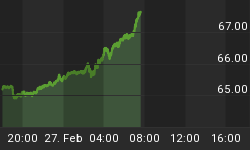Some 108,000 millionaires packed up and migrated to foreign countries last year alone, according to Johannesburg-based New World Wealth data, with everything from tax laws and political or business instability to pollution and crime pushing them out of their homelands.
The number of millionaires who migrated last year represents a 14-percent increase over the previous year--and more than double the number in 2013.
And the top destinations? Australia, the U.S. and Canada--where the grass is always greener.
That’s meant an influx of millionaires in these venues coming most notably from China, Turkey and Russia.
But the UK also lost a fair share of its millionaires over the Brexit drama, with some 3,000 choosing to escape the looming uncertainty and unclear taxation. It’s the first time that the UK has hit the negative side of this trend.
Even though China has seen a rapid increase of millionaires in the past two decades, increasingly, they’re packing their bags. Last year, China lost some 15,000 millionaires. That compares to the 7,000 millionaires Russia lost, and the 5,000 India lost.
Turkey, though, has been one of the biggest losers--steadily--thanks to instability, mass protests and an inflation rate estimated to be in the triple-digits. According to Forbes, Turkey has been losing more than 4,000 millionaires a year for three years running, and New World Wealth shows Turkey losing another 4,000 in 2018. That’s 10 percent of Turkey’s millionaires--a year.
It’s bad for a country that isn’t actually producing any new millionaires. This isn’t China.
On the receiving end, Australia shines the most, luring in some 12,000 millionaires for the biggest inflow of wealth in 2018. The U.S. came in second, taking in 10,000 millionaires, followed by Canada, which took in 4,000, and Switzerland, where 3,000 millionaires chose for their home last year.
What’s attracting everyone to the land down under is a combination of things ranging from low crime rates, strong school systems and a growing economy--not to mention the absence of an inheritance tax and lower healthcare costs. And where it comes to healthcare costs, the U.S. is entirely off anyone’s radar with a system that is wildly expensive and showing signs of cracking while possibly taking the middle class down with it.
The millionaire migration isn’t likely to let up, either.
Related: Goldman Suddenly Goes Cold On Commodities
As for this year, Knight Franks 2019 wealth report predicts that a record 26 percent of global millionaires will begin to plan for emigration.
Global private wealth has increased by 27 percent over the last decade, while over the next decade, it’s expected to grow by another 50 percent.
Right now, the world is home to over 15 million High Net Worth Individuals (HNWI’s), each with a net worth of over $1 million. Nearly 600,000 of those are multi-millionaires with more than $10 million to their name. On top of that, there are also 2,252 billionaires globally.
U.S. citizens hold the top spot HNWIs worth $63 billion. China’s massive population follows with $25 billion, while Japan comes in third with $19.5 billion. The UK claims the fourth spot, with just under $10 billion.
But these venues are necessarily churning out tons of new millionaires. For that, we have to travel to emerging markets. Asian and African nations witnessed amazing growth in wealth. Vietnam has seen 210-percent growth in private wealth over the past 10 years, followed by Mauritius with 195, India with 160 and Sri Lanka with 133 percent growth.
While taking in migrants has become an intensely heated topic from Europe to the U.S., of course no one’s turning the wealthy away at the borders for obvious reasons. But it’s also creating a $3-billion annual business in passports and residencies, which is also throwing up plenty of red flags.
Buying second citizenships or residencies isn’t a new thing, but it’s increasingly being used to avoid justice or evade taxes and bust sanctions.
Last year, the Organization for Economic Co-operation & Development (OECD) blacklisted
21 locations, that it believes are undermining international efforts to combat tax evasion.
In its 2016 report, property group Knight Frank detailed the cost of buying second citizenship and the most expensive are UK, Singapore and Austria, also the most expensive. The cheapest locations in which to buy citizenship are Caribbean nations. Buying second citizenship range from $100,000 in the island of Dominica to a minimum of $2.4 million in Cyprus.
Three European countries – Malta, Monaco and Cyprus – are among those nations flagged as operating high-risk schemes that sell either residency or citizenship.
Other names on the list are Bahrain, Colombia, Malaysia, Mauritius, Panama, Qatar, Seychelles, Turks and Caicos Islands, United Arab Emirates and Vanuatu. That is why, for instance Mauritius saw 200 percent wealth growth since 2007, making it the fastest growing wealth market in Africa.
So, millionaire immigration isn’t always about green grass, and some venues are cheating to skew the numbers. Australia, though, deserves its top spot, while the U.S. risks falling behind in Promised Land status.
By Tom Kool for Safehaven.com
















